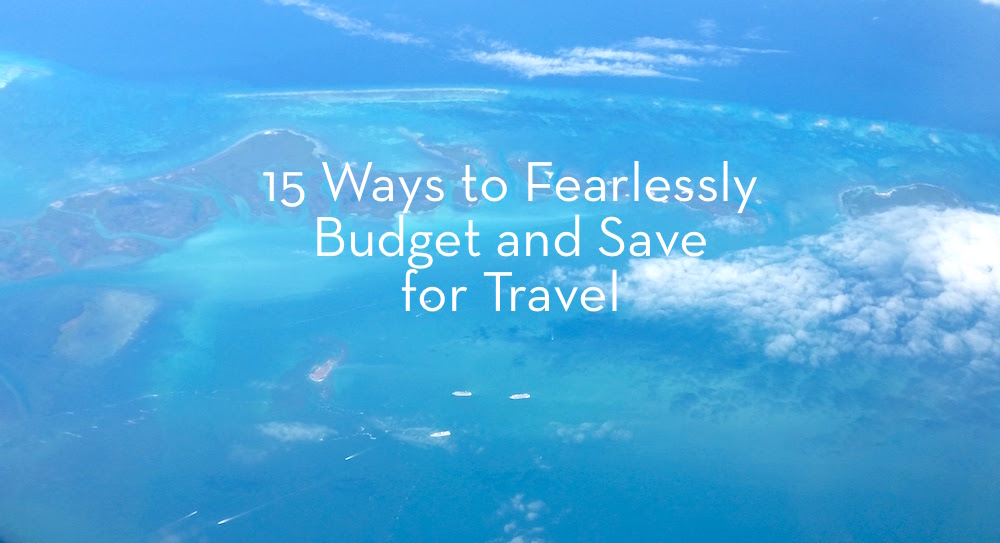
So you’re ready to plan a trip, but is your budget ready? Cost-saving practices for travel will take some research and sacrifice but the result is a worthwhile, life-changing experience. Here are some tips to help you save money for your trip and while you’re booking your trip.
1. Set your goal and prioritize.
If travel is your priority and goal, you’ve got to make some sacrifices and make some plans to reach it. Your time and your money are the biggest factors in committing to your priority. So, set your goal: take a trip to [enter country/city here] in [month, year]. Now, you’re on your way to working backward to reach your goal.
2. Go where your exchange rate is strongest.
If you haven’t decided where to go yet or are flexible, look at the places where your exchange rate is strongest. In these places, you’ll get more bang for your buck because your currency will give you more in return for their currency. A quick Internet search will give you the exchange rate or articles with recommendations.
3. Travel in the off-peak season.
Off-peak season is the time when families have finished their vacations and their kids go back to school. The off-season can also be when less favorable weather comes to the location. For example, the rainy season. It depends on the location, activities, and how much unfavorable weather will affect your trip. You don’t want to be stuck inside when you could be exploring!
4. Estimate your trip costs.
As you’ve decided your trip destination and time, figure out the estimates of how much the airfare, lodging, activities, and food will cost. Create a timeline of how much you’ll need for specific dates as you book. This will give you monetary goals to work towards for saving and you’ll be ready when you need to make a big purchase.
5. Book flights and lodging ahead of time.
Studies show that the best time to book the cheapest flight is on Tuesday afternoon and domestic flights should be booked 54 days before the trip. Three months prior to your trip is the best time to book. Be flexible with the time and day you want to travel as lower prices will vary between these. Tuesdays, Wednesdays, and Saturdays are usually the cheapest days to travel.
6. Track deals and special offers.
Set up price drop alerts for airfare through AirfareWatchdog and sign up for their newsletter to find general travel deals. Track your flight on Google Flights to see trends. Follow the tourism board of where you want to visit, preferred airlines and hotels, and travel news sites like Travel + Leisure and Frommer’s for alerts about special offers. Try tools like Skiplagged that track flight deals.
7. Try Airbnb or hostels instead of hotels.
In certain locations, you’ll find that Airbnb and especially hostels will be cheaper than hotels. Research the rates and you might find yourself a deal and environment you can live with at an Airbnb or hostel. Before you book, be sure to check the reviews of wherever you’re planning to stay.
8. Start a travel fund for gifts.
Instead of receiving physical gifts for your birthday or holidays, ask for money or gift certificates to help fund your trip.
9. Get a rewards credit card.
When you use a rewards credit card (like the Chase Sapphire Preferred Card) for things you would already buy, your purchases can give you points to redeem for flights and hotel rooms. This card will also give you zero foreign transaction fees, which means you can use the card overseas without incurring fees.
10. Learn about travel hacking.
Travel hacking is an art! It’s a way to gain the most points and miles for less. You can begin with a rewards credit card, but if you want to learn tips, check out one of my favorite resources – Chris Guillebeau.
11. Cut costs on things you can live without.
Try conscious spending. Stop your daily buys of coffee or juice. Your daily $5 habit could save you $150 a month. Can you give up cable and rely on Netflix or Hulu? What about limiting alcohol to weekend consumption only or skipping dessert when eating out? Keep your shopping habit in check and shop at a thrift store instead. Are you actually using your gym membership? Stop buying books and get a library card.
12. Cook instead of eating out.
Try meal planning and buy specific groceries when you shop. (Yes, put down that impulsive pint of ice cream!) Make and prepare meals on Sunday to be ready and temptation-less during the week. Cooking cost-effective meals doesn’t necessarily mean microwave meals or a bowl of cereal every night. You can get a large number of vegetables for very little. Expand your palette with salads and casseroles. Make and bring your lunch to work also.
13. Adjust your social life activities.
I know eating out is very much a social activity. For me, eating out is not only checking out a new restaurant but catching up with friends. What if you cooked for a friend or had a potluck instead? What free events or activities in your city can you enjoy with friends? If you want to eat out, try decreasing your bill by forgoing another drink.
14. Plan trips with other people.
Traveling with others can give you some cost savings by splitting the price of a hotel or activity. Find a travel buddy!
15. Deposit your paycheck into savings instead of checking.
It’s easy to deposit your paycheck into your checking account and spend it away. Depositing into savings can help you be more conscious of how much you are spending. If it helps, create a new checking account specifically for travel and activities and use your usual checking account for bills. If you don’t want a new account, use a spreadsheet to track your budget and how close you are to reaching your trip fund.
Do you have any money-saving travel tips you’d add?
Need help planning your trip? Send me a message with your questions.
Keep up with my travel posts and adventures. You can find me on Instagram, Facebook, Twitter, Pinterest, and Bloglovin’. You can also subscribe to the exclusive email list.








